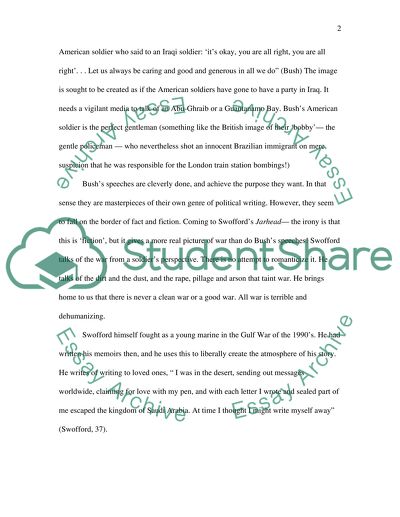Cite this document
(“Comparison of the Persian Gulf War of 1991 and The Iraq War of 2003 Essay”, n.d.)
Retrieved from https://studentshare.org/politics/1512894-comparison-of-the-persian-gulf-war-of-1991-and-the-iraq-war-of-2003
Retrieved from https://studentshare.org/politics/1512894-comparison-of-the-persian-gulf-war-of-1991-and-the-iraq-war-of-2003
(Comparison of the Persian Gulf War of 1991 and The Iraq War of 2003 Essay)
https://studentshare.org/politics/1512894-comparison-of-the-persian-gulf-war-of-1991-and-the-iraq-war-of-2003.
https://studentshare.org/politics/1512894-comparison-of-the-persian-gulf-war-of-1991-and-the-iraq-war-of-2003.
“Comparison of the Persian Gulf War of 1991 and The Iraq War of 2003 Essay”, n.d. https://studentshare.org/politics/1512894-comparison-of-the-persian-gulf-war-of-1991-and-the-iraq-war-of-2003.


